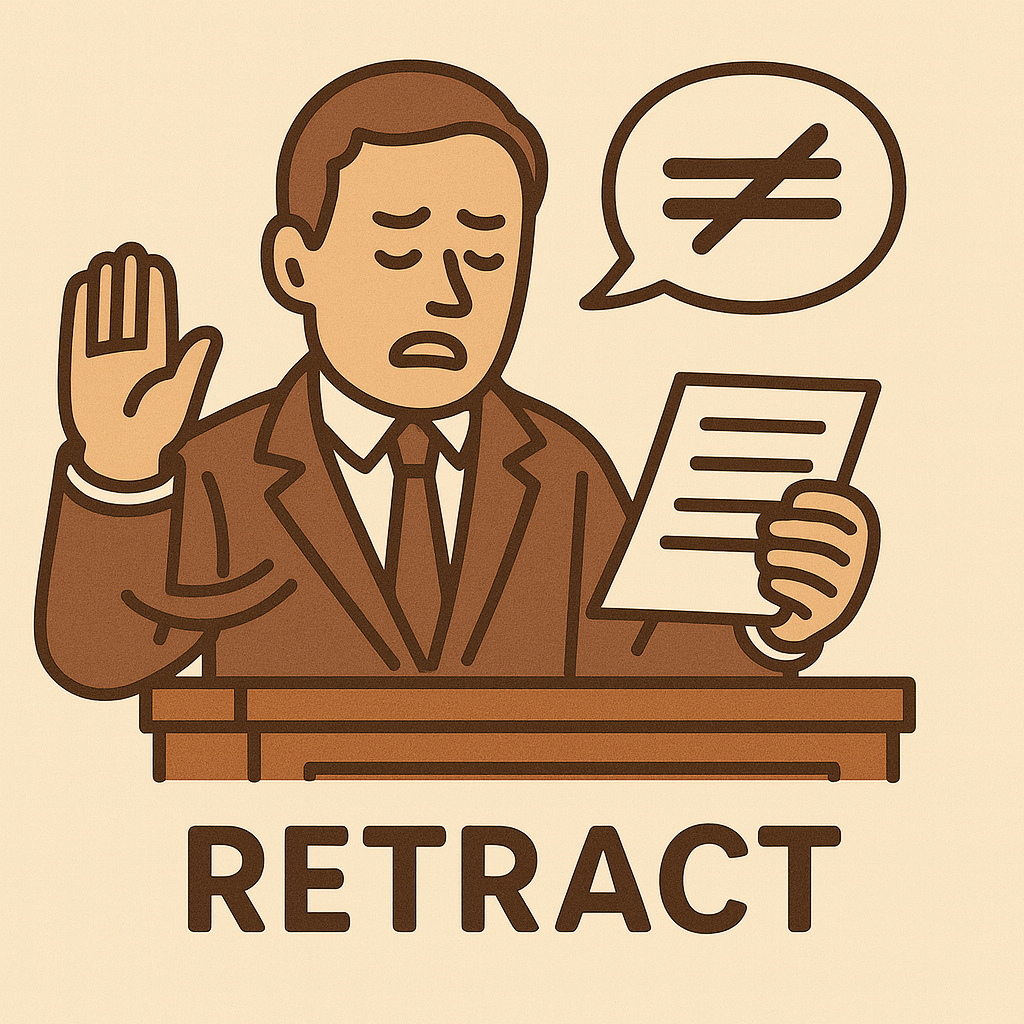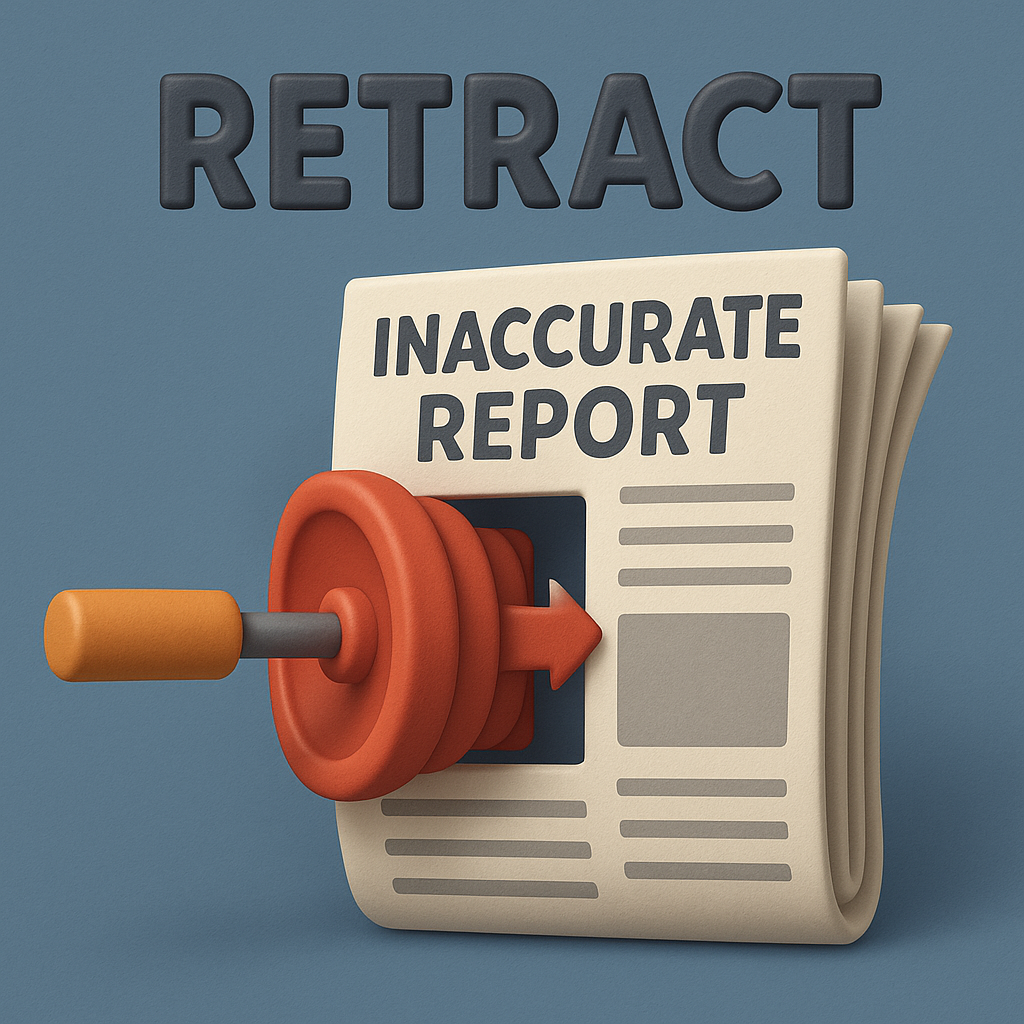Retract
Definition
Retract is a verb meaning (1) to draw back or pull inward; (2) to withdraw a statement, promise, or claim; (3) to disavow something previously asserted; or (4) in formal/scientific use, to cancel or invalidate (e.g., a research paper). As a noun (rare), it refers to the act of retracting.
Parts of Speech
- Verb (transitive & intransitive)
- Noun (rare)
Pronunciation
American English
- IPA: /rɪˈtrækt/
- Respelling: rih-TRAKT
British English
- IPA: /rɪˈtrækt/
- Respelling: rih-TRAKT
Etymology
Late Middle English from Latin retractus, past participle of retrahere “draw back,” from re- “back” + trahere “to draw, drag.” In figurative senses (withdraw a statement), the usage is attested since the 16th century.
Derivatives
- retraction (noun) — the act of retracting; a formal withdrawal of a statement or publication
- retractable (adjective) — capable of being drawn back or withdrawn
- retractility (noun; rare) — quality of being retractile
Synonyms
- withdraw
- recant
- renounce
- rescind
- cancel
- pull back
Antonyms
- assert
- confirm
- advance
- proclaim
- endorse
Usage
Verb: “The scientist had to retract his earlier claim after new evidence was published.” / “He quickly retracted his hand from the flame.” / “The journalist refused to retract the controversial article.”
Related Terms
- Recant: To formally withdraw a belief or statement, especially under pressure.
- Rescind: To revoke or annul a law, order, or agreement.
- Recall: To bring back or withdraw something (e.g., a product recall).
- Disavow: To deny responsibility for or connection with something.
- Retractile: Able to be drawn back (used in anatomy/zoology).
Detailed Definitions
Verb
- To draw back or pull inward — often of physical objects, parts, or limbs.
- Example: “The cat retracted its claws after play.”
- To withdraw a statement, promise, or claim — often in formal, public, or legal contexts.
- Example: “The newspaper retracted its inaccurate report.”
- To disavow something previously asserted — similar to recantation, often under scrutiny or new evidence.
- Example: “Under questioning, the witness retracted his testimony.”
- To cancel or invalidate — particularly of academic or scientific work.
- Example: “The journal formally retracted the fraudulent study.”
Noun (rare)
- The act of retracting — withdrawal, disavowal, or drawing back.
- Example: “The retract of his earlier remarks came too late.”
retract
.png)







